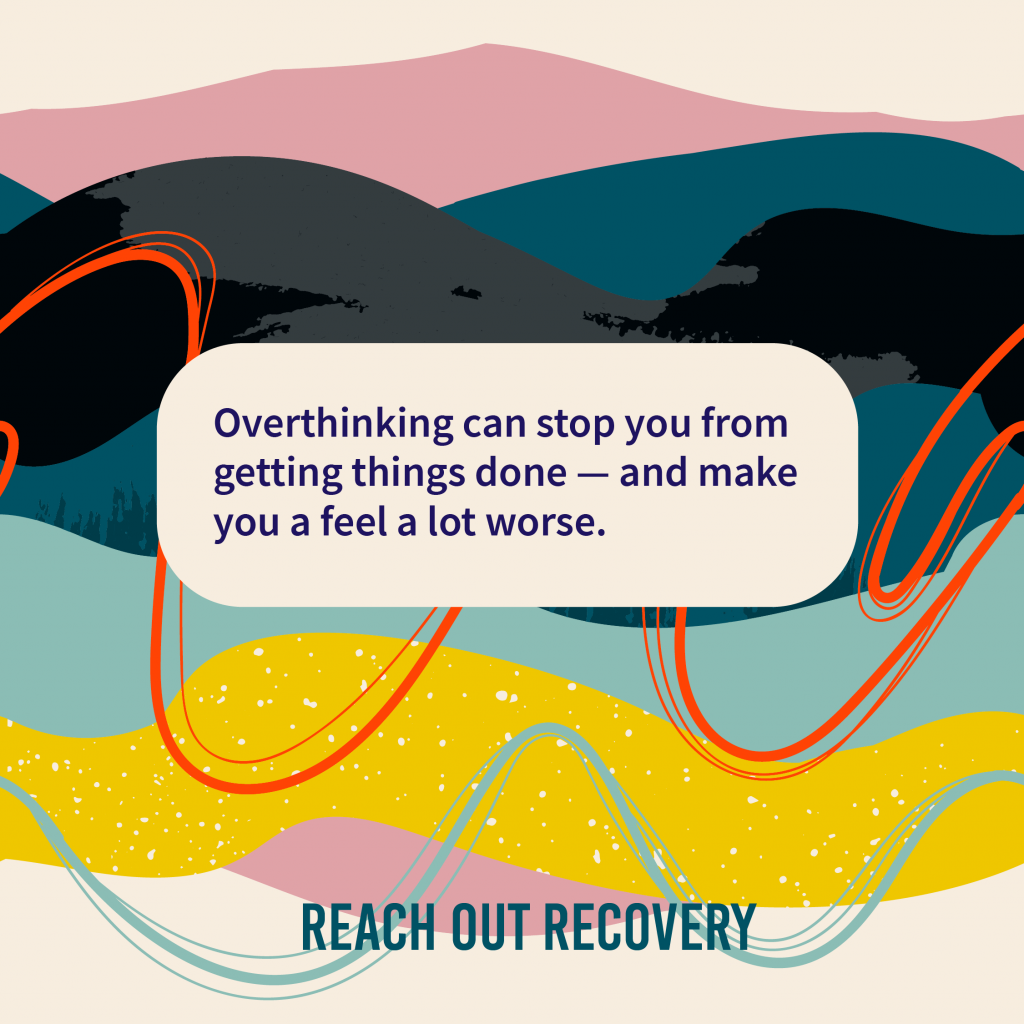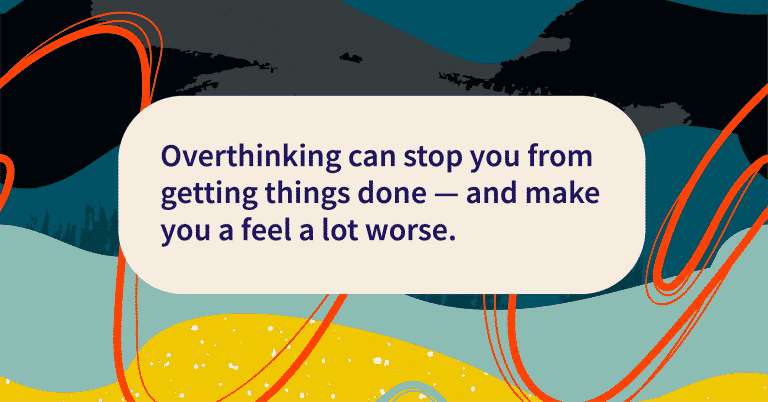
Stop overthinking everything – easier said than done, right? I know the feeling: You’re out with a new group of people and you want to say something, but every time you think of something clever to interject or have some tidbit of information you think would be relevant you pause. The worry of sounding stupid clouds your mind and you play the sentence on repeat, making sure it actually does sound correct. If you finally decide it’s something worthy of being said, the topic has changed – or, you’ve overthought this idea to death and convinced yourself it wasn’t worthy for ears anyway.
It’s an endless cycle. I was labeled as a snob in school because I was so quiet – instead, I was just stuck in my head, overthinking everything I would say or do. I would work myself into an anxious frenzy, talking myself out of performing well. Overthinking is a habit – a bad one – and can lead to anxiety and depression if not addressed. But how do we break this broken record habit?
Stop overthinking everything by noticing your internal dialogue
Your internal dialogue is just what it sounds like: How you speak to yourself. Overthinking is a negative trait your inner dialogue has picked up and just won’t leave. You’ve trained yourself to just accept this negative way of thought and probably don’t even realize how often you overthink and worry. Pay more attention to how you speak to yourself and try to twist things around a little. Grab some paper and jot down reasons why you think these negative thoughts are true and then rationalize with yourself and write down why they’re false (and most likely assumptions).
Focus more on solving problems
Don’t think about what you can’t solve. Focus on what you can. Think about what you can control. Do you find yourself living in a loop of worrying about things you can’t? Maybe there are some memories that keep surfacing that keep your mind racing. Try to keep this in mind: Thinking is only good when it’s positive. Nothing good comes from negative thoughts. Consider what you can do to improve a situation or concern and figure out the necessary steps you should take.
Turn it off
When a song or show comes on that we don’t like, what do we do? Either change the station/song or turn it off. Think of your inner dialogue as a radio station. Your thoughts change frequently – when something negative pops up, change it. Focus your energy on either solving the problem or skipping over it, depending on the kind of thought. If it’s a situation you can control – take charge and defeat that worry. Don’t procrastinate – that can lead to increased anxiety and even depression. If it’s a situation that’s out of your hands, refocus your energy on something positive. Go for a walk/jog. Pick up a book. Get some recovery work done. Do something to distract yourself until that situation passes.

For more words of wisdom, check out Lindsey Glass’s new book:





















